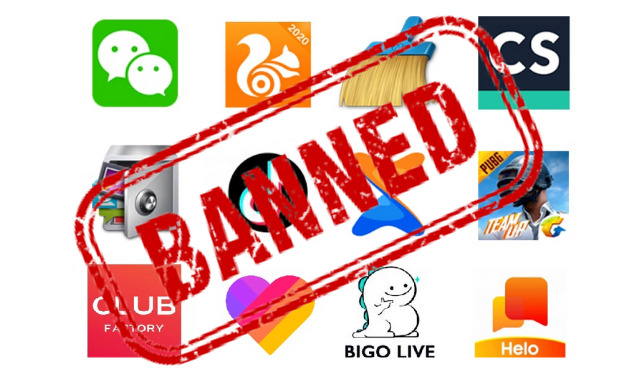The Chinese have a history of backstabbing their allies. They did not thank India for handling their own United Nations Security Council seat, instead of that they attacked India and fought a war in 1962. Being one of the largest consuming nations, India offered their market to Chinese businesses, in turn, the Chinese decided to hurt India’s interests by compromising with our national security.
This time, the Chinese have taken covert steps to harm Indian business and economic interests. In a recent investigation done by the Times of India, it has been found that out of the Top 60 applications, currently operating in India, 8 are still under Chinese Operations. These apps have a total of 211 million users combined. When India decided to ban these apps in July 2020, the same applications had a combined user base of 96 million. Within one year, they have shown significant growth of 220 percentage points. Almost all of these 8 applications belong to the media and entertainment sector, the same sector where Tik-Tok and Snack Video were operating before their bans. The companies specifically chose this sector as the growth potential of this sector is huge and the user base grows exponentially in these sectors. According to the investigation report, some of the apps, launched after the ban has managed to add tens of millions of users in just months.
According to the Times of India, most of the Chinese companies providing these apps are either not listed directly, or their primary owners are untraceable. However, the recruitment process of these companies, public records on ownership patterns and corporate websites of these apps present a clear picture of the owner. In some cases, the owner of the current Chinese app is the same as the owner of the apps that were banned last year.
Byte dance which owns Tik-Tok and UC browser refused to comment on the backdoor entry of Chinese apps, while Xiaomi gave a formal reply quoted as – “Being a responsible corporate, we give paramount importance to ensuring that we are compliant with all Indian laws and the orders issued by the Indian government and have always abided by this principle.’’
Earlier, in July 2020, the Indian Government had banned 269 Chinese applications using provisions under Section 69 A of the IT Act. The government had taken down TikTok, UC Browser, PUBG, Helo, AliExpress, Likee, Shareit, Mi Community, WeChat and CamScanner, Baidu Search, Weibo, Bigo Live, apart from some apps from Xiaomi.
Read more: Indian Government explains why it banned so many Chinese apps and why it will keep banning them
When contacted, the Government officials said that any action regarding the ban on these 8 Chinese applications will be taken only after security agencies raise a red flag over their functioning.
The anonymity offered to investors due to the global maze of equity holdings and complex corporate structure is being used by the Chinese operators to not just establish their presence in India, but also flourish on the Indian consumer market en route clearing flouting norms. This is an unacceptable reality for 1.4 billion Indians. Indian consumer base has been used by Chinese corporates and we have been caught napping. These kinds of wild card entries are going to harm the MAKE IN INDIA initiative and are intolerable for the Indian public. The Indian data should remain inside the Indian sovereign space and the Government should make sure that Chinese companies do not make a wild-card entry.
At a time when the Indian economy is recovering from the post-COVID impact, the growth has to be driven by demand in the economy. If the public loses confidence because of this floundering of norms, it’s tough for demand to pick up. Not just economically, these apps are a huge concern for the strategic interests of India too. We Indians need more vigilantes on these Chinese.
